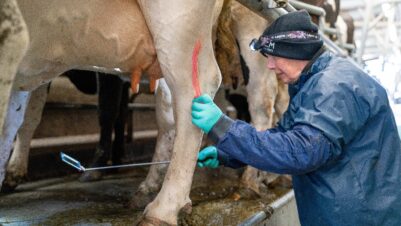We are all familiar with the compelling scientific argument for integrating sustainability into our daily lifestyles and workplace, and the moral responsibility as veterinary professionals to exercise stewardship over the natural world around us, but the business opportunities created from integrating sustainability within our organisations are less discussed.
Veterinary professionals operate across the agricultural sector, pharmaceutical industry and business sector, and also interact directly with the general public. Therefore, we have the power to drive change across a diverse sphere of influence and are presented with an opportunity to demonstrate sustainability leadership to great effect.
Financial
Sustainability goals are largely focused on reducing resource use. Cost savings can be achieved through energy saving measures, water saving measures and waste reduction. Adhering to the waste hierarchy (from most to least optimal: reduce, reuse, recycle, recover, dispose (gov.uk, 2011)) and by performing correct waste segregation it is possible to reduce overall waste disposal costs.
Increasing demand for sustainable procurement will influence change at supplier level, resulting in a greater choice of sustainable products and services at a more cost-effective price. Buying reusable, long lasting products with minimal packaging can reduce purchasing volumes and waste production.
There are many cost-saving sustainability measures that can be easily implemented. For example, using reusable clinical waste containers. These result in 84 percent lower greenhouse gas emissions than their single-use counterparts (Grimmond and Reiner, 2012) and are more cost-effective. Reducing paper use is also an easy way to be more sustainable, through paper-free management software and only printing double sided. Using reusable surgical gowns and caps, hand towels and patient bedding to avoid single-use disposables can also help, as well as using low flow anaesthesia and volatile agent-sparing techniques to reduce harmful anaesthetic gas greenhouse emissions and oxygen consumption (Jones and West, 2019). There is also an opportunity to apply for the government funding available for sustainability initiatives, such as electric vehicles, renewable energy generation and improving the energy efficiency of new and existing buildings (Workspace).
Reputational
With large corporate groups beginning to appoint sustainability managers, it is likely we will see a big shift towards more sustainable operations and facilities in the near future. There is scope within every veterinary practice – corporate or independent – to embark on sustainability initiatives. Being seen to act in an environmentally responsible manner is appealing to clients, both existing and new, to help grow the client base. It could even tarnish an organisation’s reputation if they are not addressing the climate crisis we are facing, despite sustainability efforts from competitors. The fact that millennials, with their high rate of pet ownership, are the generation who spends the most on their pets (Packaged Facts, 2019) and are also the most sustainability conscious generation yet, is not to be overlooked.
Future-proofing the business
Climate change, loss of biodiversity and extreme weather events will certainly have implications on future business activities: disrupting supply chains, damaging property, hiking insurance premiums, affecting food security and increasing the risk of infectious and zoonotic diseases as we have recently experienced with COVID-19. Government policies will change, in order to reduce carbon emissions, and align business activities with the UN Sustainability Goals. Large businesses already have to conform with the energy savings opportunity scheme (ESOS), but if all businesses introduce robust sustainability changes sooner rather than later, this may help to minimise operational disruption and financial uncertainty in the future.
Recognition
Practices embarking on sustainability initiatives can gain official recognition for their efforts from bodies such as Investors in the Environment and the Carbon Trust, who offer accreditation schemes. This is looked upon favourably by clients and employees alike.
Employee engagement
In a recent BVA survey, 89 percent of vets said that they would like to play a more active role in the UK sustainability agenda. Integrating sustainability into your practice’s ethos may well improve employee retention as well as attract new graduates, as being eco-friendly leads to a positive self-image (Venhoeven et al., 2016). Practising sustainability can also drive innovation among the workforce (Sarni and Capozucca, 2012).
Integrating sustainability into your organisation is the future, and it makes business sense to stay ahead of the curve, rather than being left behind.







